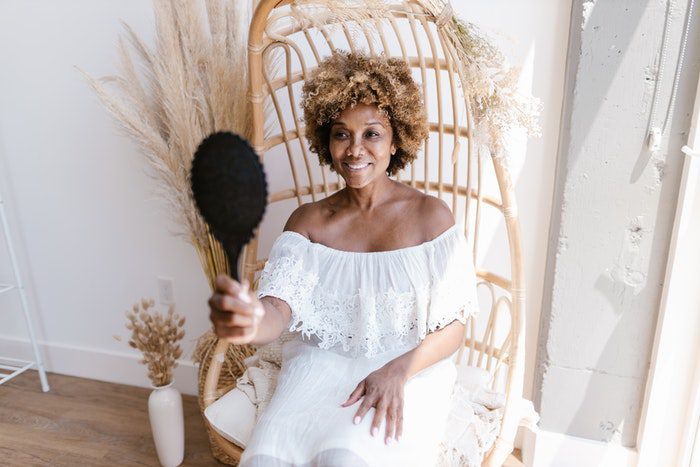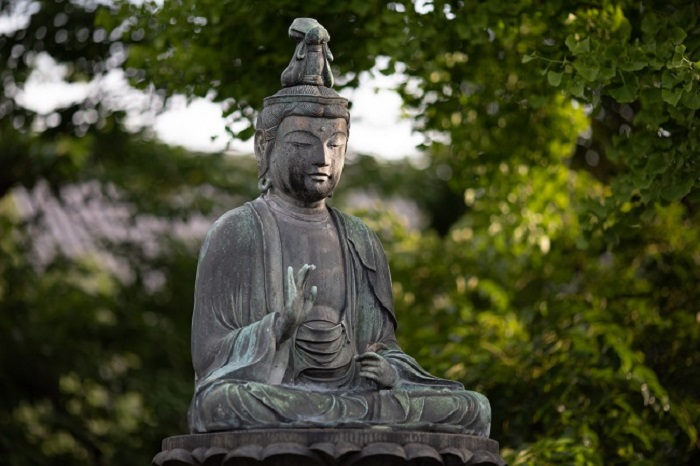Honesty is the first chapter in the book of wisdom.
Thomas Jefferson
Self-honesty is the only way to improve yourself and your life. That’s because when we are honest with ourselves, we are able to accurately identify our strengths and our weaknesses. We can figure out what qualities we possess, and which aspects of our character need work. In short, self-honesty allows us to accurately assess who we are at this very moment.
Of course, it’s easy to spot the people who are dishonest with themselves. We would call some of those people “arrogant.” They’re the folks who think that they’re better than others. They’ll readily tell you about how incredibly interesting, intelligent, successful, and talented they are. However, they’re being dishonest with themselves because they have an exaggerated sense of their own abilities.
On the flip side of that coin are the folks who are insecure. They go through life believing that they aren’t enough. They believe that they aren’t sufficiently attractive, smart or talented, even though they truly are wonderful human beings. There’s a disconnect between how they see themselves, and who they actually are.
Self-honesty allows us to develop an accurate view of who we are. Through self-honesty, we can learn to clearly see our strengths and our weaknesses. And that knowledge allows us to excel in life. Because it’s only from that vantage point that we can figure out how to improve ourselves!
Below are ways to engage in self-honesty. Use these approaches to get a realistic sense of who you actually are. It’s from there that you can work to become the amazing person that you were meant to be!
Acknowledge Your Negative Emotions
Self-honesty requires us to acknowledge when we have negative emotions. Unfortunately, when we have negative, unpleasant emotions, we often find ways to excuse them. So, we may say something like, “Well, I was angry, but that person really upset me.” But if we are being honest with ourselves, we should say, “I got angry. And that’s a negative emotion that doesn’t serve me in any way. Worse yet, it hurts other people.”
Admittedly, it’s uncomfortable to admit that we have negative emotions. No one wants to admit that they have feelings of frustration, anxiety or anger. But explaining away those emotions isn’t helpful. What is helpful is to be honest and say, “That isn’t a positive emotion, and I need to work on that emotional response.”
Realize that if you explain away your negative emotions, you’ll never grapple with them. For instance, I can be impatient. That isn’t a good emotion. Now, every time I get impatient, I could say to myself, “Well, I was impatient because that person was irritating me.” And I would spend the rest of my life being an impatient (and unpleasant) person.
But instead, when I occasionally feel impatient, I acknowledge the emotion. And I say to myself, “I’m feeling impatient, and this feeling is unproductive. My blood pressure is going up, and I’m behaving in an irritable manner with others. I need to take a step back and decide how I really want to operate in this situation.”
When we are honest with ourselves about our negative emotions, that is the starting point for change. Self-honesty allows us to stop, identify our negative emotion, and then choose a better way to act.
Identify Your Values
It’s important to be honest with yourself about what you truly value. Only then can you live an authentic life that reflects your values.
The problem is that when we don’t engage in self-honesty, we can end up simply adopting the values of our friends and family members. Now, admittedly, their values may be just fine. They may value things like hard work and social justice. And that’s all good! But we each have to chart our own course in life. And that means figuring out what you value.
As an adult, your values should be informed by your life experience and your personal reflection. For instance, my values are based, in part, on what I’ve observed works in life and what doesn’t. Over the past couple of decades, I’ve seen that kindness, self-control and personal responsibility are the keys to living a good life. So, those are the qualities that I value. My values also are based on the many books I’ve read about how to be a good person and live a good life.
Of course, there’s nothing wrong with your parents providing you with a value system with which to start out in life. But once you become an adult, if you’re still parroting your parents, you haven’t grown up. Growing up means figuring out what your values are. And it’s only by being honest with yourself that you can determine what it is that you believe.
So, engage in some self-honesty and ask yourself, “What is it that I value?” Once you live a life that reflects your unique values, then you truly will be living an authentic life.
Challenge Your Limiting Beliefs
Sometimes, we can have limiting, false beliefs. Typically, those are the beliefs that we’ve adopted as a result of our upbringings. For instance, in large families, people often segregate children by skillsets. So, they’ll say, “Bob is the athletic one, and Sue is the smart one.” I’ve never understood that approach. It always seemed to me that Sue could be both athletic and smart, but in large families, they like to label everyone.
The problem is that people end up believing those labels! So, poor Bob will go through life thinking that he isn’t that bright because he was the “athletic one.” And Sue will think that she has two left feet because she was the “smart one.” Neither one of them is served by these silly labels, and yet they sadly will go into adulthood with these limiting beliefs.
Alternatively, you may have had no feedback growing up. As a result, you may possess the limiting belief that you can’t possibly be good at anything! I grew up with little to no feedback, either positive or negative. So, I entered adulthood wondering, “What exactly am I capable of doing with my life?”
As a result, when I became a grown up, I had to engage in self-honesty. I had to take stock of myself and figure out what I was good at. It took some time, but over the years, I’ve been able to accurately assess both my strengths and my weaknesses.
So, to engage in self-honesty, you have to accurately assess yourself. You have to figure out what you are good at and identify the areas that need work. And to do that, you have to let go of any limiting beliefs from your childhood.
The good news is that self-honesty allows us to accurately assess our qualities, and the areas where our skills or character which need work. And its with that knowledge that we can truly grow and improve as individuals.
Pay Attention to Negative Feedback
If you are struggling to be honest with yourself, you probably struggle with negative feedback. I’ll concede that not all negative feedback is valuable. Sometimes, it’s nonsense. But self-honesty requires us to not ignore or immediately dismiss the negative feedback that we receive. Rather, we need to give it some consideration.
For instance, let’s say that you receive negative feedback that you’ve been rude. If it happens once, you might blow it off. You may justify your rudeness by telling yourself that the other person was being too sensitive. But let’s say that you regularly receive feedback that you are rude. You can keep blowing off that feedback, as well. But then you’re just being dishonest with yourself.
Self-honesty requires us to take a hard look at ourselves and assess whether the negative feedback that we are receiving is true. If it is, then we have to decide whether we want to change and improve ourselves.
Now, over the years, I’ve known people who could be rude and unkind. And after receiving negative feedback, they decided that they weren’t interested in changing their behavior. That’s a choice! It isn’t a good choice, but it’s a choice one can make.
But if you want to use self-honesty as a tool to become a better human being, it’s worth your time to pay attention to the negative feedback that you receive. Figure out whether there’s any truth in it. If you conclude that it’s true, then make the decision to change your behavior to become a kinder, more decent human being.
Be Willing to Be Vulnerable
Self-honesty, in part, requires us to accept that as human beings, we are fallible. We make mistakes. And if we acknowledge that we are imperfect and make mistakes, we become vulnerable. We’re vulnerable to the judgment and criticism of others.
Realize that it takes emotional maturity to be vulnerable. Now, there are lots of emotionally immature people walking this earth who are unwilling to be vulnerable. Instead, they go through life being very defensive. They won’t admit when they’ve either made a mistake, used poor judgment or hurt someone else. But if you want to improve as a human being, you need learn how to be vulnerable and admit your faults and errors.
For myself, I’ve made it a rule in my life to admit my mistakes and to be quick to apologize. That’s because I grew up around adults who never apologized and failed to acknowledge when they erred. So, when I became an adult, I decided that I wasn’t going to operate that way in life. Instead, I decided to always be forthright about my qualities and my failings.
That approach has served me well in life. If I make a mistake, I apologize quickly and my ego is in no way bruised! That’s because I’m confident in my abilities. And I know that I have good, ethical intentions in all that I do. As a result, if I make a mistake, I’m OK with that! I figure that the occasional mistake is just part of my being a human being.
So, be brutally self-honest with yourself and acknowledge your mistakes! And be willing to be vulnerable to the criticism of others. Criticism is fine! We all make mistakes. So be honest about your occasional errors, and accept your imperfection.
Self-honesty is powerful. By identifying your strengths and weaknesses, you know where you excel in life, and you know the areas that you need to work on. And that is the only way to become the exceptional human being that you were meant to be. (To read about how to live authentically, click here.)








